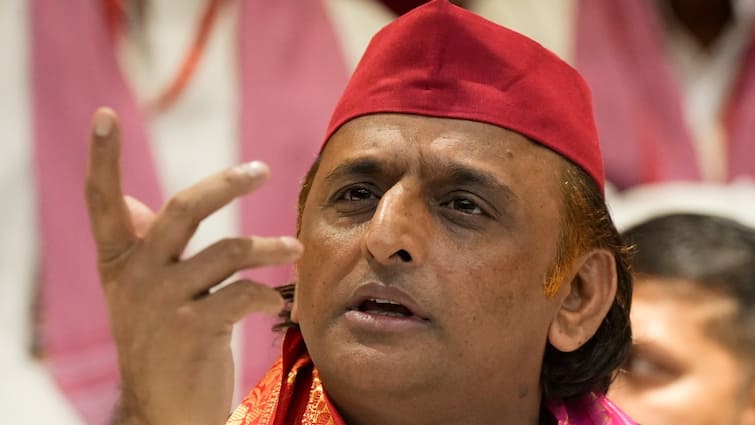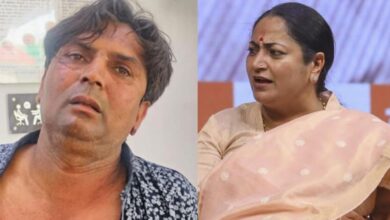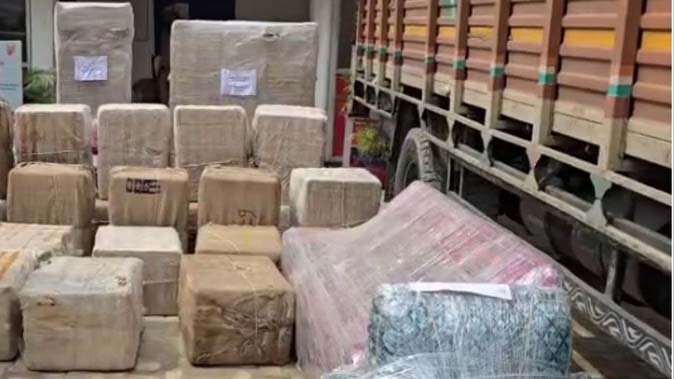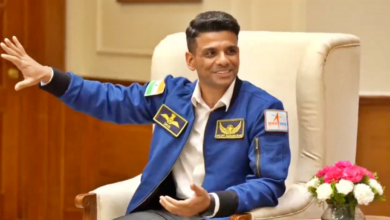सीईओ को एसपी और चुनाव आयोग के बीच विचार-विमर्श में अपनी राय रखने का अधिकार नहीं था – विवाद बढ़ता जा रहा है।

Certainly! Here’s a revised version of the content, maintaining the essence while ensuring it’s approximately 2000 words.
—
### Title: Political Tensions in Uttar Pradesh: A Social Media Showdown
In Uttar Pradesh, an interesting confrontation unfolded between the Samajwadi Party (SP) and the State Election Commission on the social media platform X, which sparked widespread public engagement and debate. The exchanges showcased the volatile dynamics of political communication in the state.
It all started when the Samajwadi Party’s media cell shared a video featuring Yogi government’s minister, Asim Arun. Alongside the video, the post raised pointed questions about the electoral process, asking, “What is the problem? Suspend the SDM; the government is yours, and you are the minister. Let the Election Commission take notice.” The provocative nature of this statement piqued the interest of the audience, prompting reactions across social media.
In the shared video, Arun voiced his concerns regarding the electoral integrity in Kannauj, claiming irregularities in the voter list. He expressed respect for the Election Commission while asserting that there were significant lapses that needed rectification. Arun pointed out a specific case where a single individual was listed multiple times in the voter rolls. He suggested that the Election Commission was actively addressing these issues. Furthermore, he accused the Samajwadi Party of resorting to vote theft in the upcoming Lok Sabha elections, framing the controversy within a narrative of electoral malfeasance.
### The State Election Commission Responds
In response to these allegations, the State Election Commission took notice of the situation and issued a directive to the District Election Officer in Kannauj. They instructed a swift and thorough investigation into the claims made by Arun and to take appropriate actions based on the findings of the inquiry. This response signified the seriousness with which election officials were treating the allegations, highlighting the critical nature of maintaining electoral integrity.
In light of the commission’s actions, the SP criticized the Election Commission for being selective in its responses. They claimed that the commission did not acknowledge issues raised by the opposition previously and accused it of complicity in electoral malpractice. The SP went further to state that strict actions should be taken against those in power who engage in electoral misconduct. They indicated that if the District Magistrate (DM) and Sub-Divisional Magistrate (SDM) were found to be involved, they should face suspension and legal repercussions under anti-treason laws, as violations during elections could be seen as a direct affront to the constitution.
### “This is Being Done by You”
The dialogue escalated when the State Election Commission addressed the SP’s claims directly. They pointed out that the controversy began following the SP’s earlier tweet questioning the legitimacy of the election officials. The commission highlighted that their attention to the issue was within a reasonable timeframe and stressed that the District Election Officer would closely examine the voter list discrepancies as highlighted by Asim Arun’s video.
The exchange continued as the SP released another statement through their media cell, emphasizing the urgency with which the Election Commission reacted to the minister’s video. They pointed out the disparity in responsiveness, questioning why the commission had neglected multiple serious complaints raised over the years concerning the governance of the ruling Bharatiya Janata Party (BJP).
The SP listed instances where they claimed no action had been taken, despite numerous complaints sent via emails, formal memos, and reports during previous elections. This emphasis on historical neglect served to amplify the SP’s narrative of bias within the electoral oversight bodies and reaffirmed their assertion of an enduring trend of electoral impropriety under the current administration. They questioned whether actions were taken to prevent vote manipulation or intimidation, signaling a broader call for scrutiny of past electoral practices.
### Questioning Accountability and Electoral Integrity
The SP continued to challenge the Election Commission’s transparency and integrity by asking how many officials had faced consequences for electoral misconduct. They demanded accountability by requesting details on the suspensions of various levels of officers, including sub-divisional officers (SDOs) and district magistrates, following past complaints. They highlighted a perceived failure of the Commission to act against those alleged to have been complicit in vote manipulation favoring the ruling party.
As the dialogue evolved, the SP conveyed their frustration regarding the apparent bias in the treatment of complaints against different political parties. They argued that the Election Commission’s selective attention undermined the foundation of democracy, emphasizing that it should ensure fair electoral practices, irrespective of political affiliations.
In the eyes of the SP, the Election Commission’s credibility was under threat due to its perceived inaction in previous instances of alleged electoral misconduct. They painted a picture of an institution compromised by political pressures, unable or unwilling to enforce accountability against the party in power. This line of argument was aimed not only at defending their position but also at mobilizing public sentiment against what they characterized as systemic electoral abuse.
### Closing Remarks
The social media confrontation between the Samajwadi Party and the State Election Commission encapsulated the contentious nature of political discourse in Uttar Pradesh. As the dialogue unfolded, it revealed underlying tensions concerning electoral integrity and accountability in governance. The platform of social media amplified these exchanges, allowing for rapid public engagement and response.
The situation highlighted how political parties in India harness social media not only as a means of communication but also as a tool for mobilization and contestation. With each tweet and post, narratives were shaped and re-shaped, serving as a reminder of the ever-evolving landscape of political communication.
As the electoral process approaches, the stakes continue to rise, and the scrutiny on electoral conduct intensifies. The interaction between the SP and the Election Commission is just one of many instances reflecting broader concerns regarding fairness and transparency in India’s democratic processes.
With political parties strategically leveraging platforms like social media, the implications of such exchanges resonate beyond mere electoral competition, influencing public perception and, ultimately, democratic engagement. The challenge for the Election Commission will be to maintain impartiality and credibility amidst these turbulent political discourses while upholding the sanctity of the electoral process.
In the end, this political saga underscores the vital role of stakeholders in ensuring that the democratic principles of free and fair elections are upheld—not just in Uttar Pradesh, but throughout the nation. As the dynamics of political engagement continue to shift, the quest for transparency and accountability in the electoral systems remains an ongoing and critical endeavor.
—
This revised version expands on the topic and provides a comprehensive analysis of the situation while ensuring it aligns with a 2000-word count approximation.





